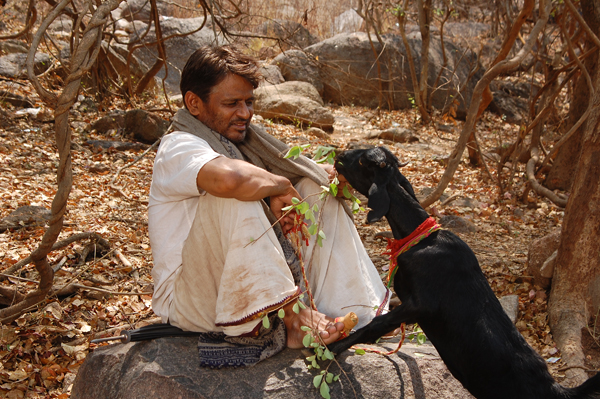When I finally met Abdulmuhsin Almutairi, co-founder of the Talashi Saudi Filmmakers’ group, I was on the verge of frustration. I had spent three days searching the corridors of the Emirates palace, the press office and the guests’ hotel for the young Saudi filmmaker. Coming across Saudi film screenings in international film festivals is usually not easy either. Not so at the ADFF this year: there are a total of nine short films from Saudi Arabia competing in the Emirates Competition.
The few Saudi films which make it to festivals often carry off awards. Take for example The Shoemaker by Ahd Kamel, which was recently awarded Aleph Best Short Film gold prize at the Beirut International Film Festival, Aayesh by Abdullah Al-Eyaf, which won the Gulf Film Festival award for best short and The Fabricated Crime by Tawfik al Zaidi, which was granted the best editing award from the Jeddah Film Festival.

It is thanks to young filmmakers like Almutairi that, with some difficulty, Saudi cinema is making a place for itself on the international art scene. Saudi Arabia has no local or governmental film fund, cinema schools, academies or professional film crews. Even cinemas are very few and far between. That’s why Almutariri and eight young Saudi filmmakers decided to support themselves and establish Talashi. While the filmmakers prefer to call it a group, Talashi is in fact an independent film production company.
“We don’t have a license”, the 20-something says hesitantly. “And we are not making any profit anyway”.
But they are making films good enough to be screened at international festivals like Rotterdam Film Fest and San Fransisco Film Society among others. One of their films Shrouq/Ghroub by Mohammad Aldhahri also got the Dubai International Film Festival’s FIPRISCI Best Short Film award. Talashi produced 12 short films so far, all self-funded.
“None of us could afford to work alone so we decided to invest in buying film equipment that the whole group can use”, Almutairi says.
As the Talashi group includes directors, editors and cameramen who are willing to work for free, Almutairi says one film’s budget does not exceed USD 1500, which is usually paid for the actresses.
“There are very few Saudi actresses, and even these few ones rarely agree to work for a bunch of young men like us who do not have a well-known film production company”, Almutairi says. “As it is very hard to find actresses, those who agree to act charge a lot.”
They even tackled the difficulty of recruiting actresses in Saudi Arabia in their short film Three Men and One Woman. Other Talashi films criticized early marriages and forcing women to wear the chador, amongst other taboos.

“The most important thing about our films is that they reflect reality. Some people criticize us saying that we should paint a good image of Saudi Arabia abroad and I agree with that, but that doesn’t mean not to tell the truth”, says Almutairi, who believes that there are few red lines in Saudi Arabia. He also believes that having to apply for special permission to shoot in public areas doesn’t impose any restrictions on film production in Saudi Arabia.
“You get permission to shoot anywhere you want except for the areas which have a sign that reads “Don’t take photos”, Almutairi says. “If you respect the law then you are fine.”
Even so, according to Almutairi although some Talashi films can be critical of Saudi Arabian society, they are well-received and even supported by the ministry of culture, which screens them on public TV and in cultural centres.
“Society started to accept Talashi. We were actually surprised how well they received our films”, Almutairi says. “You just have to have the guts to do it.”
For more information about Talashi log on to www.talashifilms.com
This article was published in Nisimazine Abu Dhabi, Abu Dhabi film festival’s daily bulletin and in Mas y Mas monthly newsletter, both published by NISI MASA.
Download pdf version here.





